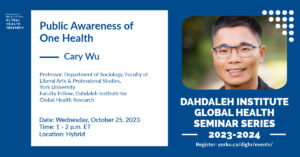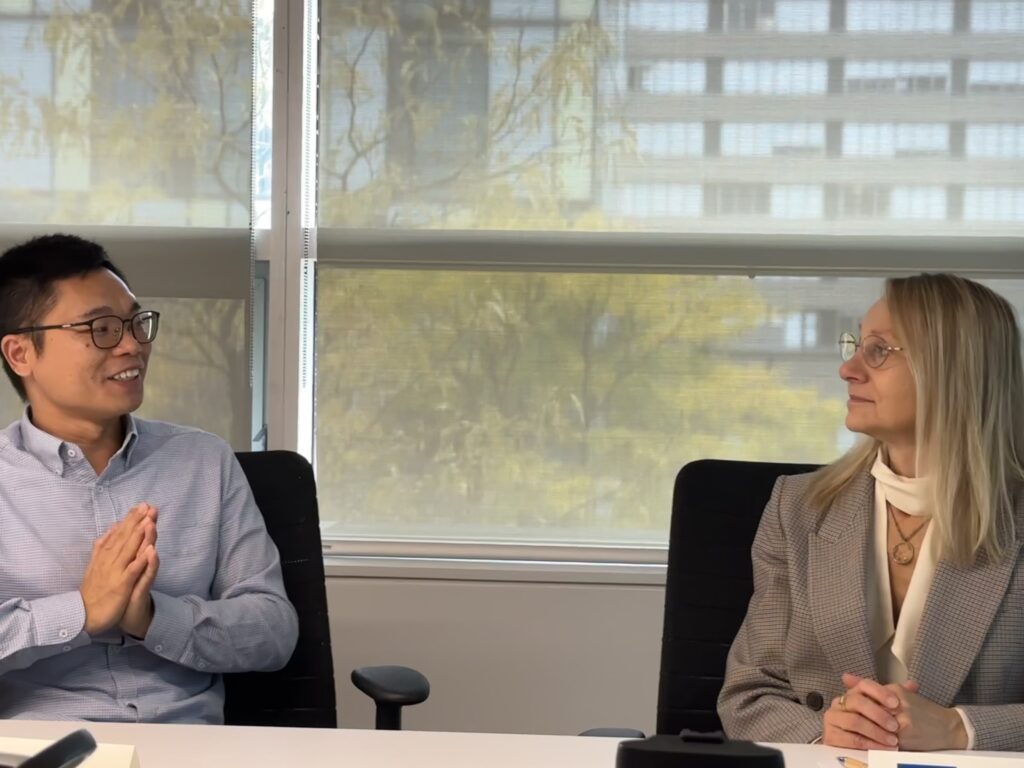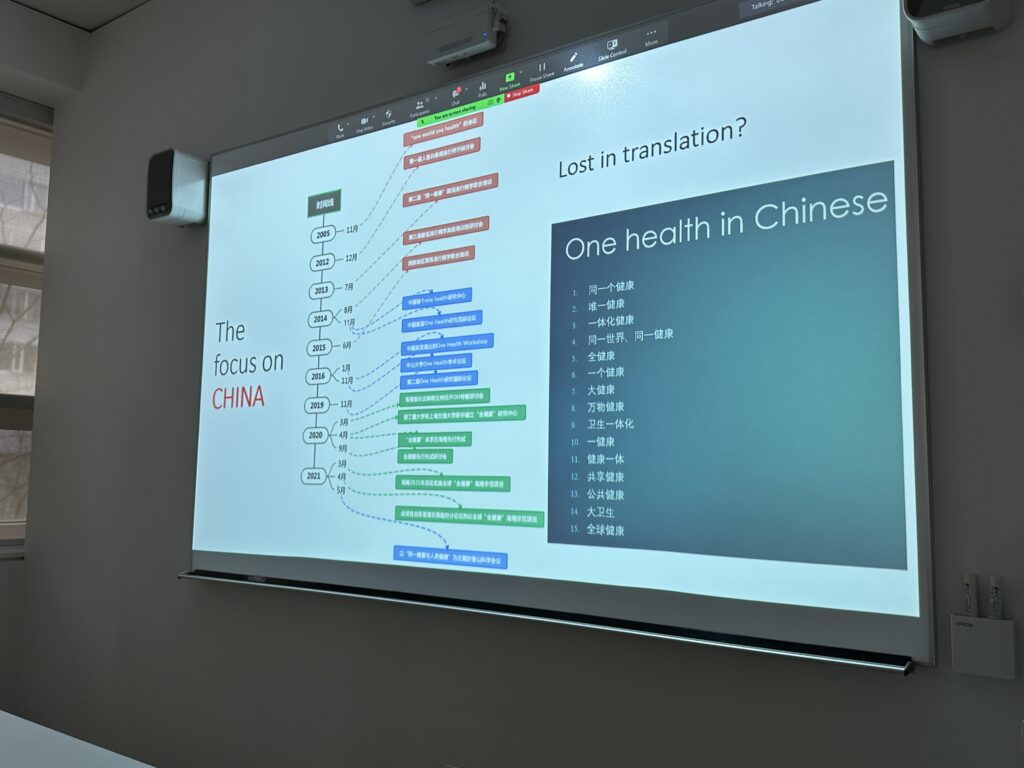Post
Published on January 17, 2024

On October 25, 2023, Dahdaleh faculty fellow and Professor Cary Wu delved into the multi-faceted concept of One Health. Professor Wu explained the theoretical, methodological, and practical dimensions of One Health. He emphasized its integrative approach to balancing human, animal, and ecosystem health on local, regional, national, and global scales. The definition is derived from the One Health High-Level Expert Panel (OHHLEP) framing One Health as an integrated, unifying strategy recognizing the interconnectedness of people, animals, and ecosystems.
Wu underscored the significance of public awareness in the context of One Health, highlighting its role in driving health actions, influencing political will for governance, ensuring public support for health regulations, and ultimately, contributing to policies. Moreover, Wu observed variations between professional communities and the general public, noting a higher awareness among professionals. As well, across demographics in China, awareness levels fluctuate with approximately 40% awareness of the term of One Health however, a large portion agreed the idea of One Health that human health is intricately linked to animal and environmental health.
In conclusion, Wu noted that despite demographic variations, there is a prevalent understanding of the interconnectedness of human, animal, and environmental health as the definition of One Health. The pandemic catalyzed awareness of One Health in some countries, fostering heightened awareness and interest. It offered a more positive and less politically polarized perspective than climate change.
Watch the seminar presentation below:
Connect with Cary Wu
Themes | Global Health & Humanitarianism |
Status | Active |
Related Work |
N/A
|
Updates |
N/A
|
People |
You may also be interested in...
Hot off the Press – Digital Technologies and Food Security During Crisis: Covid-19 Experiences from Smallholder Farmers in Odisha, India
Since the COVID-19 pandemic, approximately 150 million people experienced hunger due to food insecurity. Digital agriculture technology determines accurate and specific risks in food production, providing farmers valuable insights to market conditions of a region ...Read more about this Post
Recap – Science is Necessary But Not Sufficient for Positive Public Policy Impacts
On January 25, Dr. Jean-Jacques Rousseau used his broad experiences in government in Canada and abroad to comment on instances when scientific and technical advice fails to have a positive influence on public policy: "Science ...Read more about this Post
Recap — Addressing the Structural Drivers of Tuberculosis to #EndTB
In celebration of World Tuberculosis (TB) Day 2023: Yes! We Can #End TB! Faculty fellow and founder of the Social Science and Health Innovation for Tuberculosis Centre (SSHIFTB), Amrita Daftary, facilitated a seminar discussing how ...Read more about this Post


